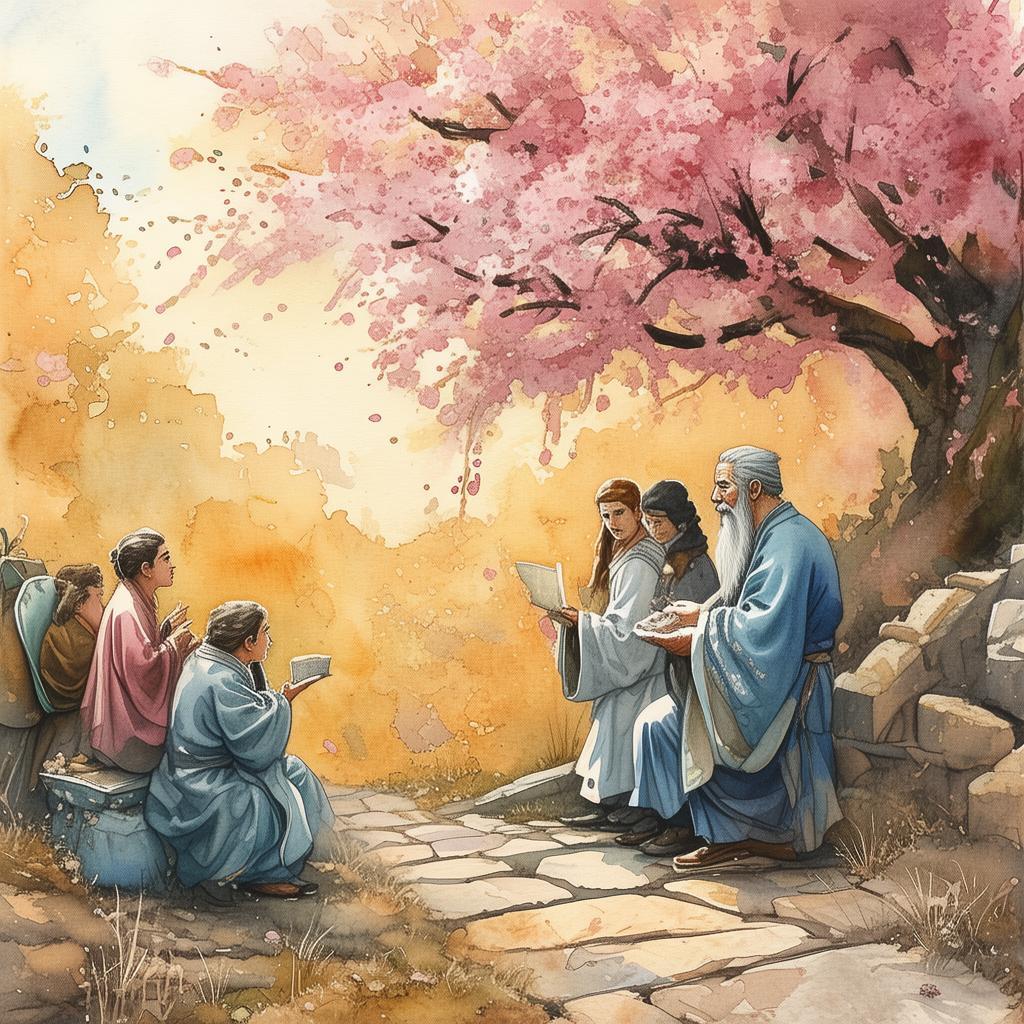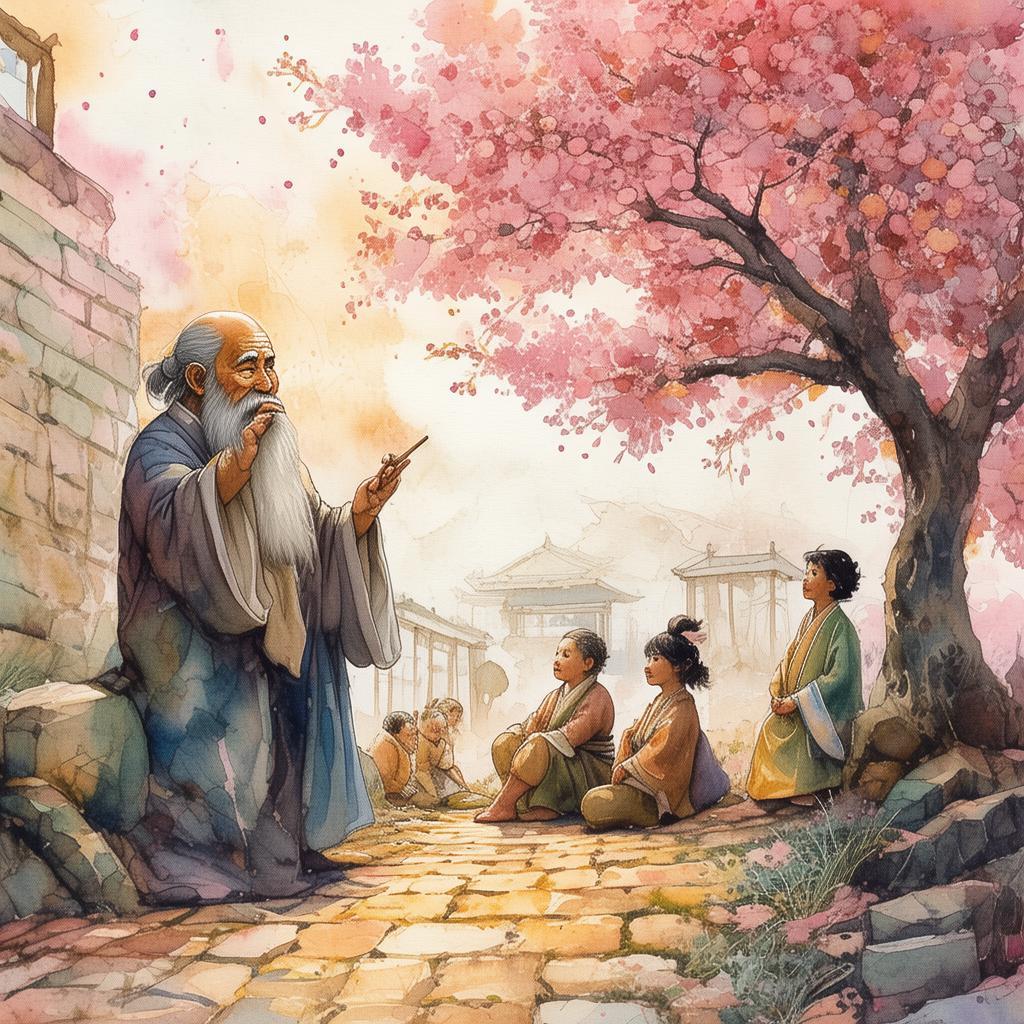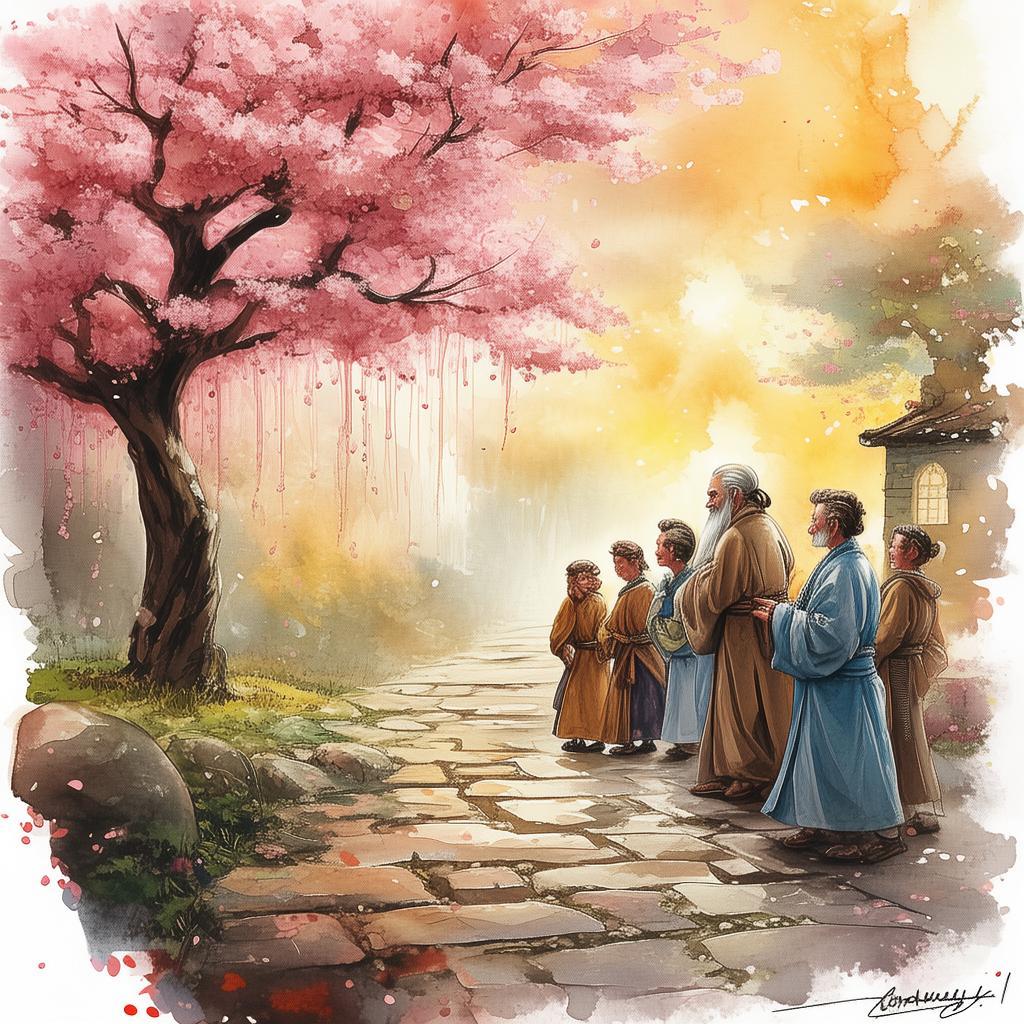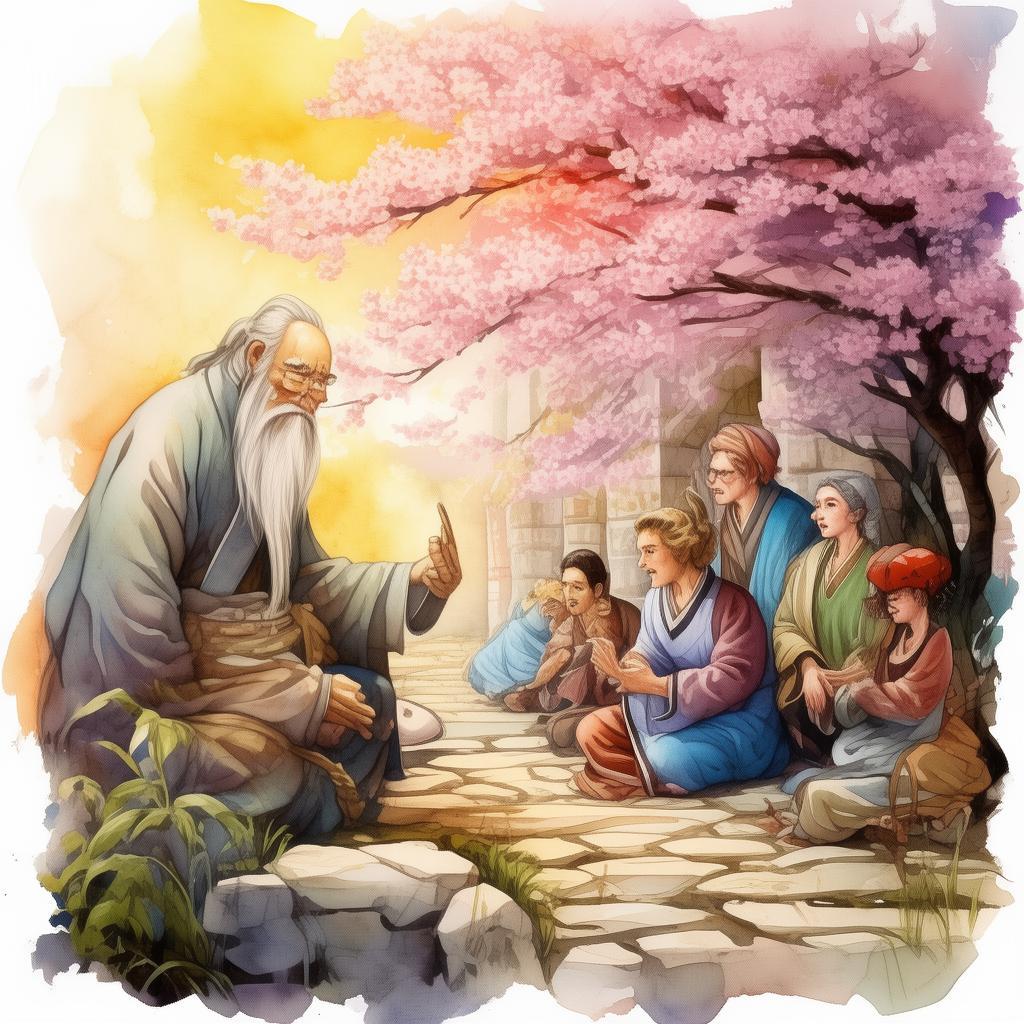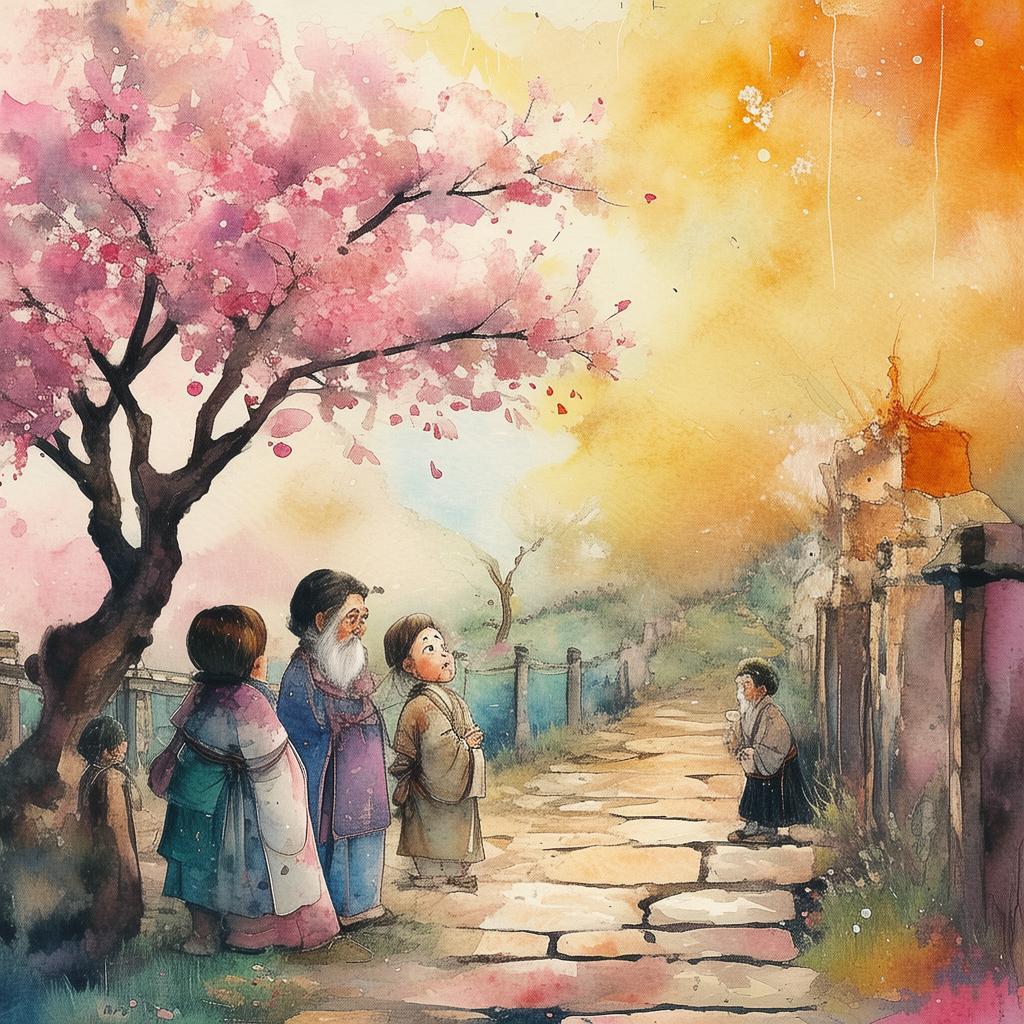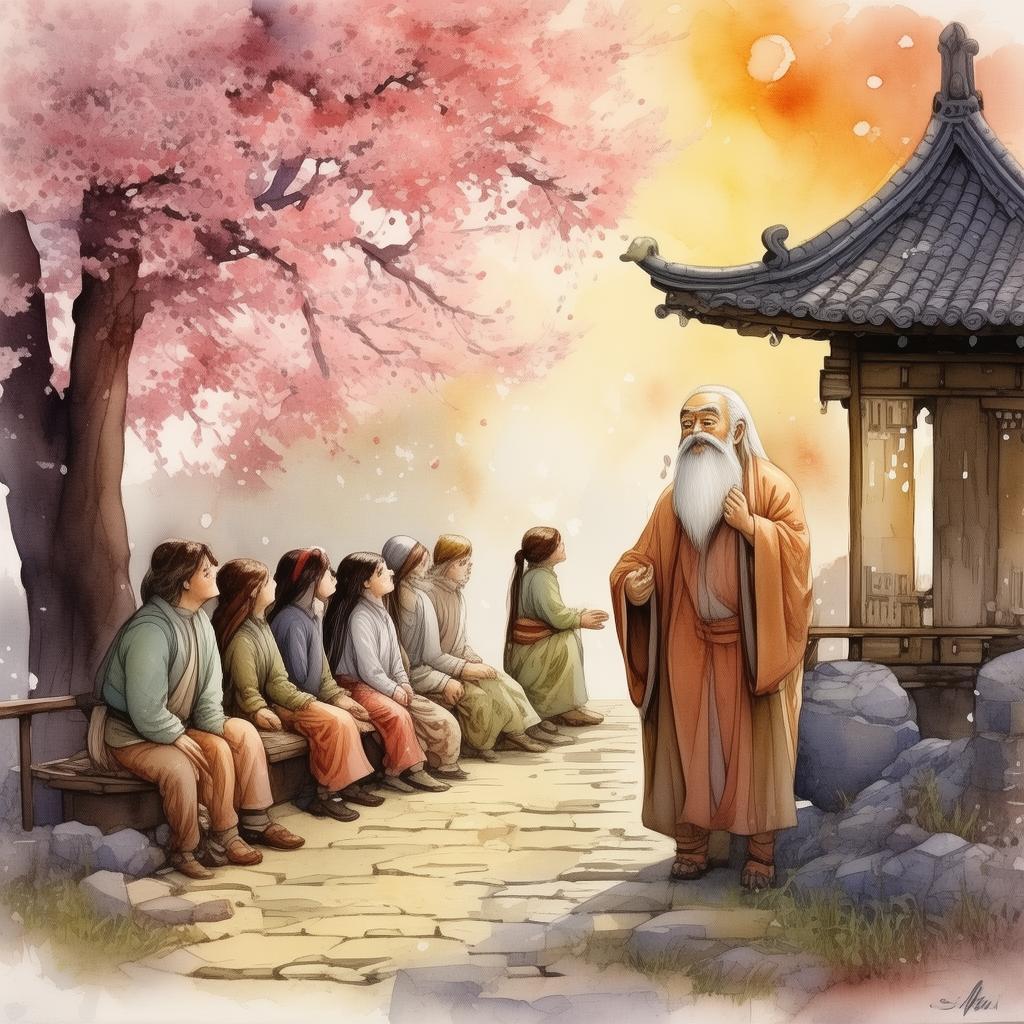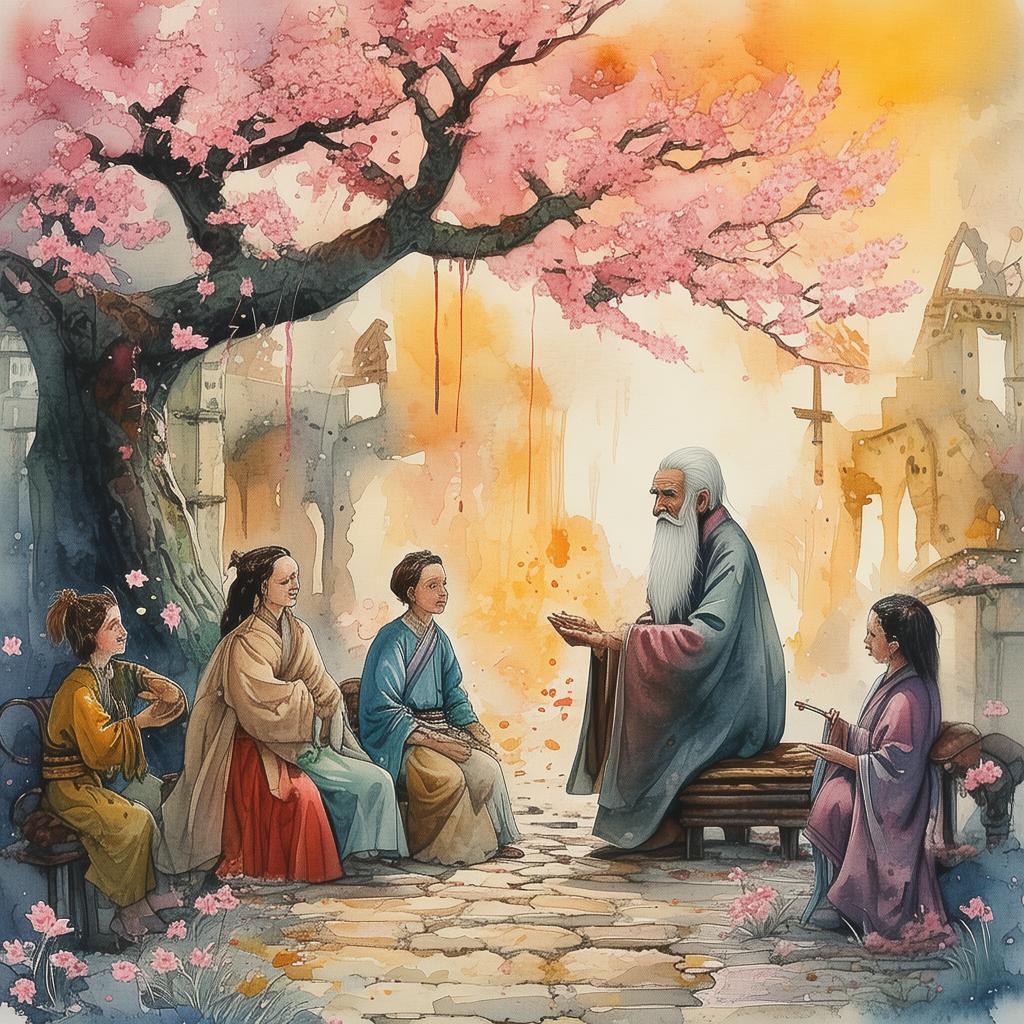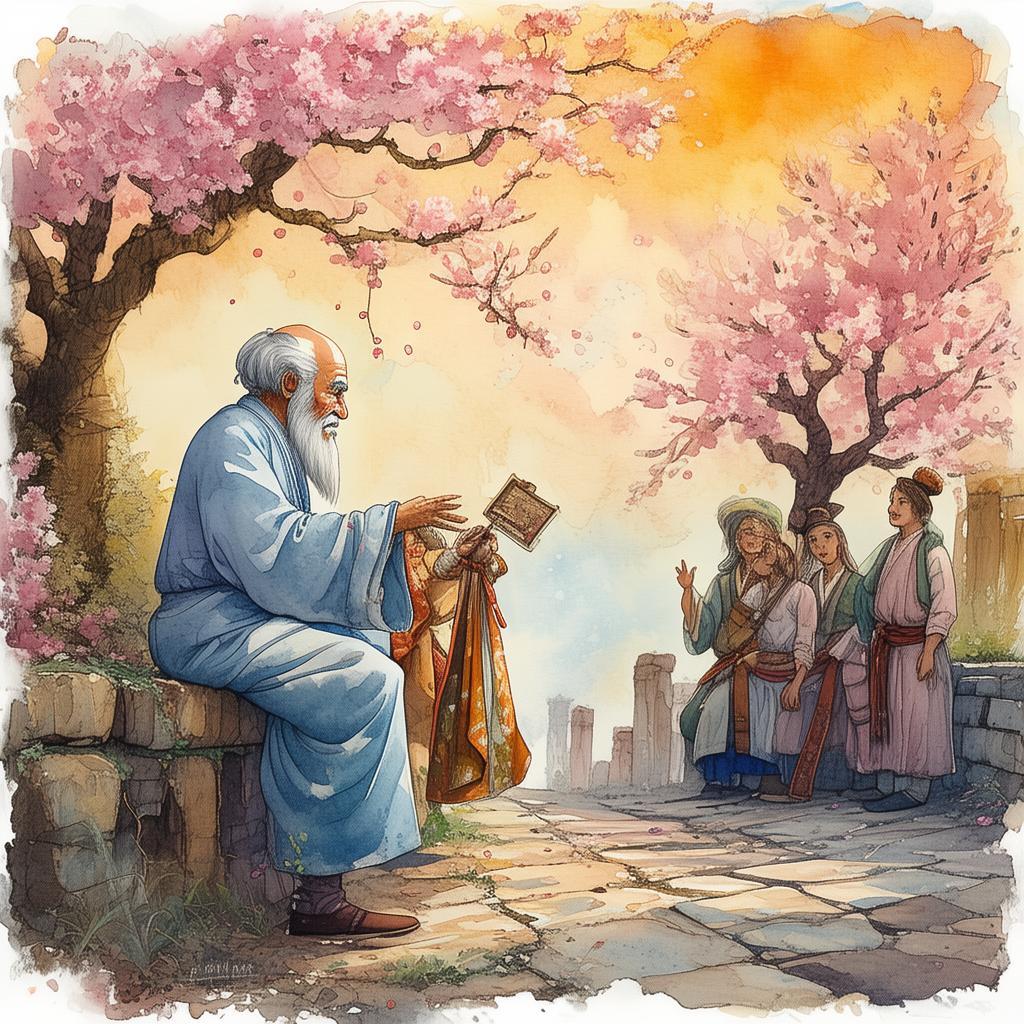The Dragon's Dance: The Seven Words of Life
In the heart of the ancient kingdom of Jin, there stood a library known as the Pillar of Knowledge, a repository of wisdom and secrets that had been passed down through generations. The library was guarded by a dragon, a creature of great power and wisdom, who spoke only in riddles and proverbs. The most sacred of these proverbs were the Seven Words of Life, each a key to understanding the universe and the human condition.
Among the scholars of Jin was a young scribe named Ming, whose passion for knowledge was matched only by his talent for deciphering ancient texts. Ming was chosen by the High Council to learn the Seven Words of Life, a task that would elevate him to the highest echelons of the kingdom's hierarchy.
The first word Ming learned was "Sacrifice." The dragon spoke of the necessity of giving up something dear for the greater good. Ming was to use this word as a guide, to make decisions that would benefit the kingdom, even if it meant personal loss.
The second word was "Trust," a lesson in the fragility of human connections and the importance of faith in others. Ming was to trust his mentors, his friends, and the words of the dragon.
The third word was "Courage," the bravery to face one's fears and the strength to stand up for what is right, even when it is the most difficult path.
The fourth word was "Patience," a reminder that great things take time and that haste can lead to ruin.
The fifth word was "Humility," the understanding that one's knowledge is finite and that there is always more to learn.
The sixth word was "Forgiveness," the act of letting go of anger and resentment, and the power to heal old wounds.
The seventh and final word was "Truth," the most powerful of all, for it was the foundation upon which all other words stood.
As Ming learned these words, he became a trusted advisor to the king, and his name was spoken in reverence throughout the kingdom. But as power grew, so did ambition, and Ming's mentor, the High Councilor Feng, saw an opportunity to seize even more power.
Feng betrayed Ming, framing him for a crime he did not commit. Ming was banished from the kingdom, his life in ruins, and his faith in the Seven Words of Life shattered.
Ming wandered the lands, seeking redemption and the truth behind Feng's betrayal. He found himself in a remote village, where a wise old woman told him of a prophecy that spoke of a scribe who would bring peace to the kingdom through the power of the Seven Words of Life.
Ming realized that the words he had learned were not just proverbs, but tools for survival and redemption. He returned to the Pillar of Knowledge, determined to uncover the truth about Feng's betrayal and restore his honor.
In the depths of the library, Ming discovered a hidden chamber, where the dragon awaited him. The dragon spoke again, revealing that Feng had been chosen by the ancient council to be the vessel for the dragon's power, but he had used that power for his own gain.
The dragon entrusted Ming with a mission: to destroy Feng and restore balance to the kingdom. Ming, now understanding the true nature of the Seven Words of Life, knew that the sacrifice he must make was his own life.
With a heavy heart, Ming confronted Feng, and in a climactic battle, he defeated the High Councilor. But in the process, he was mortally wounded.

As Ming lay dying, he spoke the Seven Words of Life, using them to bind the dragon's power to his own spirit. In his final moments, he forgave Feng, understanding that forgiveness was the only way to let go of his own pain.
The dragon, grateful for Ming's sacrifice, took his spirit to the afterlife, where he would continue to watch over the kingdom. Ming's legacy lived on, not as a scribe, but as a symbol of the power of the Seven Words of Life.
The kingdom of Jin was forever changed by Ming's sacrifice, and the Seven Words of Life became more than proverbs; they became a guiding light for all who sought to understand the true nature of life and the universe.
✨ Original Statement ✨
All articles published on this website (including but not limited to text, images, videos, and other content) are original or authorized for reposting and are protected by relevant laws. Without the explicit written permission of this website, no individual or organization may copy, modify, repost, or use the content for commercial purposes.
If you need to quote or cooperate, please contact this site for authorization. We reserve the right to pursue legal responsibility for any unauthorized use.
Hereby declared.


